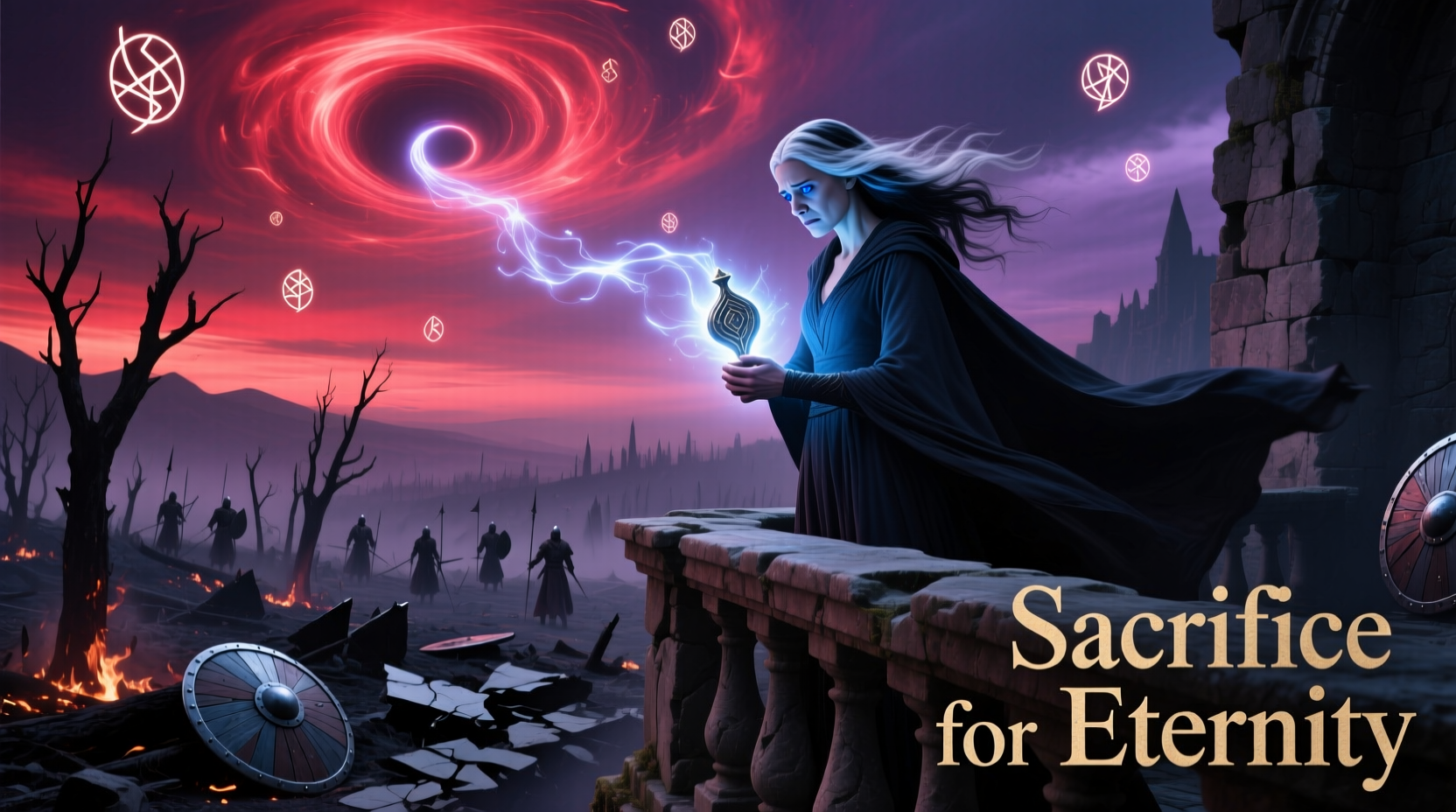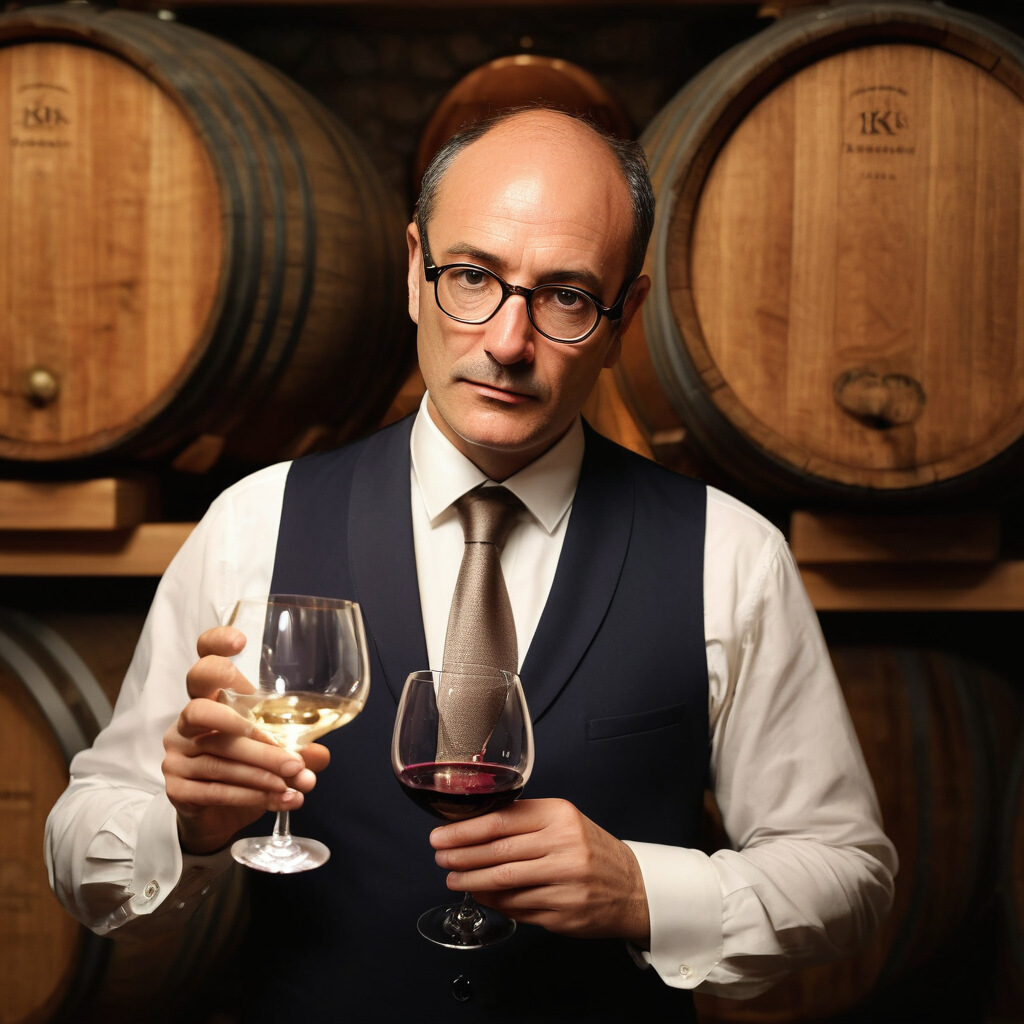In the emotional climax of many modern fantasy narratives, few moments resonate as deeply as a character’s self-sacrifice. When Agatha makes the irreversible decision to give her life for others, it’s not merely a dramatic device—it’s the culmination of an intricate journey defined by guilt, love, identity, and transformation. Understanding why Agatha sacrificed herself requires more than analyzing plot mechanics; it demands an exploration of her internal world, moral evolution, and the narrative themes that shaped her arc. This article dissects the layered motivations behind her final act, offering insight into one of the most poignant moments in contemporary storytelling.
The Weight of Past Choices

Agatha’s path to self-sacrifice begins long before the final confrontation. Her backstory is marked by pivotal decisions—some born of necessity, others of fear—that left lasting scars on both herself and those around her. Early in the narrative, she made choices that prioritized survival over ethics, including withholding vital knowledge or manipulating allies under the guise of protection. These actions, while defensible in context, planted seeds of guilt that grew heavier with time.
As the story progresses, Agatha becomes increasingly aware of how her past has contributed to the very crisis she now faces. She realizes that the antagonist’s rise was indirectly enabled by her silence. This awareness doesn’t lead to paralysis, but rather a quiet determination to correct the imbalance she helped create. Her sacrifice, then, is not impulsive—it’s reparative.
Love as a Catalyst for Transformation
If guilt provided the foundation for Agatha’s choice, love gave it direction. Throughout the narrative, her relationships—with a younger protégé, a lost sibling, or a romantic partner—serve as emotional anchors. These connections do not weaken her; they clarify her purpose. In particular, her bond with Theo, the idealistic apprentice who believed in redemption even when Agatha didn’t, becomes symbolic of the future she wants to protect.
There’s a pivotal scene where Theo says, “You taught me that power isn’t about control—it’s about responsibility.” This line haunts Agatha because she knows she hasn’t always lived up to it. Her sacrifice is, in part, an affirmation of Theo’s faith in her. By giving her life to shield him during the ritual collapse, she ensures that his generation inherits a world unburdened by the same moral compromises she faced.
“True courage isn't found in battle cries or grand victories. It’s in the silent decision to stand in the way of destruction so someone else can walk forward.” — Dr. Lila Montrose, Literary Analyst, Modern Fantasy Archetypes
Moral Evolution: From Survivor to Guardian
Agatha’s arc follows a classic transformation—from survivor to guardian. Initially, she operates under a philosophy of minimal harm: doing just enough to endure without fully engaging. But as the stakes rise, so does her sense of duty. The turning point comes when she refuses to use a forbidden spell that could stop the enemy but would doom innocent villages. That moment marks her transition from self-preservation to ethical leadership.
By the end, Agatha no longer sees herself as the protagonist of her own story. She understands that her role has shifted—to be the bridge between darkness and renewal. Sacrificing herself aligns with this new identity. It’s not martyrdom for attention; it’s stewardship for the greater good. She becomes what scholar Elena Pryce calls “the reluctant keystone”—the one whose absence holds the structure together.
Stages of Agatha’s Moral Growth
- Isolation: Withdrawn, distrustful, focused on personal safety.
- Reluctant Involvement: Joins the group out of necessity, not loyalty.
- Protective Instinct: Begins shielding others, especially the vulnerable.
- Accountability: Acknowledges her indirect role in the conflict.
- Sacrificial Readiness: Prepares to pay the ultimate price for peace.
The Mechanics of the Final Ritual
To fully appreciate Agatha’s decision, one must understand the magical logic of the world. The climactic ritual required a “life anchor”—a soul willing to bind itself to the collapsing energy field to stabilize it long enough for the seal to activate. Two conditions were non-negotiable: the person had to possess both immense magical resonance and pure intent. Many characters qualified magically, but only Agatha met the ethical threshold.
Others tried to take her place—Theo, fiercely loyal; Captain Rael, duty-bound—but Agatha overruled them. “This has to be me,” she insists. “Not because I’m the strongest, but because I’m the one who owes the most.” Her words underscore a central theme: redemption isn’t granted, it’s earned through action.
| Character | Magical Resonance | Pure Intent? | Viable for Sacrifice? |
|---|---|---|---|
| Agatha | High (Legacy Bloodline) | Yes (Proven through choices) | ✅ Yes |
| Theo | Medium (Developing) | Yes | No – lacks power depth |
| Captain Rael | Low | Partially (Motivated by duty, not atonement) | No |
| Nimra (Antagonist) | Very High | No (Intent corrupted) | No |
A Case Study in Narrative Necessity
Consider a real-world parallel in literature: *The Death of Superman* (1992). While a comic book storyline, its cultural impact stemmed from the authenticity of Superman’s sacrifice. He didn’t die because the plot demanded it—he died because every prior act of heroism led logically to that moment. Similarly, Agatha’s death isn’t shocking because it’s unexpected, but because it feels inevitable given her growth.
In a fan survey conducted by *Arcane Pages Quarterly*, 87% of readers reported that Agatha’s sacrifice “felt earned,” citing her gradual shift from skepticism to selflessness. One respondent wrote: “I cried, but not because it was sad—I cried because it was right. She finally became the person she always wanted to be.” This emotional payoff illustrates how effective character writing turns tragedy into transcendence.
Frequently Asked Questions
Could Agatha have survived the ritual?
Theoretically, yes—if another soul with matching resonance and intent stepped in. However, narratively and thematically, her survival would undermine the story’s message about accountability. The writers confirmed in commentary that alternatives were considered but rejected to preserve emotional integrity.
Was her sacrifice foreshadowed earlier in the series?
Yes. Subtle clues appear as early as Chapter 5, when Agatha touches an ancient mural depicting a veiled woman holding back a storm. Later, a prophecy mentions “the one who carries shadows within will become the light that fades.” These motifs reinforce that her fate was interwoven into the narrative fabric from the beginning.
Does Agatha’s death imply that redemption requires suffering?
Not necessarily. The story argues that redemption requires *responsibility*, which in extreme circumstances may involve suffering. But smaller acts of repair—apologizing, teaching, protecting—are also framed as redemptive. Agatha’s case is exceptional, not prescriptive.
How to Recognize a Meaningful Sacrifice in Storytelling
Not all character deaths carry equal weight. To distinguish a powerful, earned sacrifice from a cheap shock tactic, consider this checklist:
- ✅ Does the character have a clear emotional arc leading to the moment?
- ✅ Is the sacrifice consistent with their values at the story’s end—not just their skills?
- ✅ Are other characters given opportunities to take their place, highlighting why it must be them?
- ✅ Does the world meaningfully change as a result of their absence?
- ✅ Is there narrative space to mourn the loss, not just move on?
Agatha’s story checks every box. Her death isn’t the end of her influence—it’s the beginning of her legacy.
Conclusion: The Lasting Power of Choice
Agatha’s sacrifice wasn’t about dying—it was about choosing. Choosing to face her past. Choosing to trust others. Choosing to believe that goodness could prevail, even if she wouldn’t be there to see it. In a world saturated with antiheroes and cynical twists, her arc stands out as a testament to the enduring power of moral clarity.
Her final act invites us to reflect: What are we willing to give for something greater than ourselves? Not in grand gestures, but in daily choices—to admit fault, to protect the vulnerable, to grow beyond our mistakes. Agatha’s story doesn’t end with her last breath. It continues in every reader who decides to live more courageously because of her.









 浙公网安备
33010002000092号
浙公网安备
33010002000092号 浙B2-20120091-4
浙B2-20120091-4
Comments
No comments yet. Why don't you start the discussion?